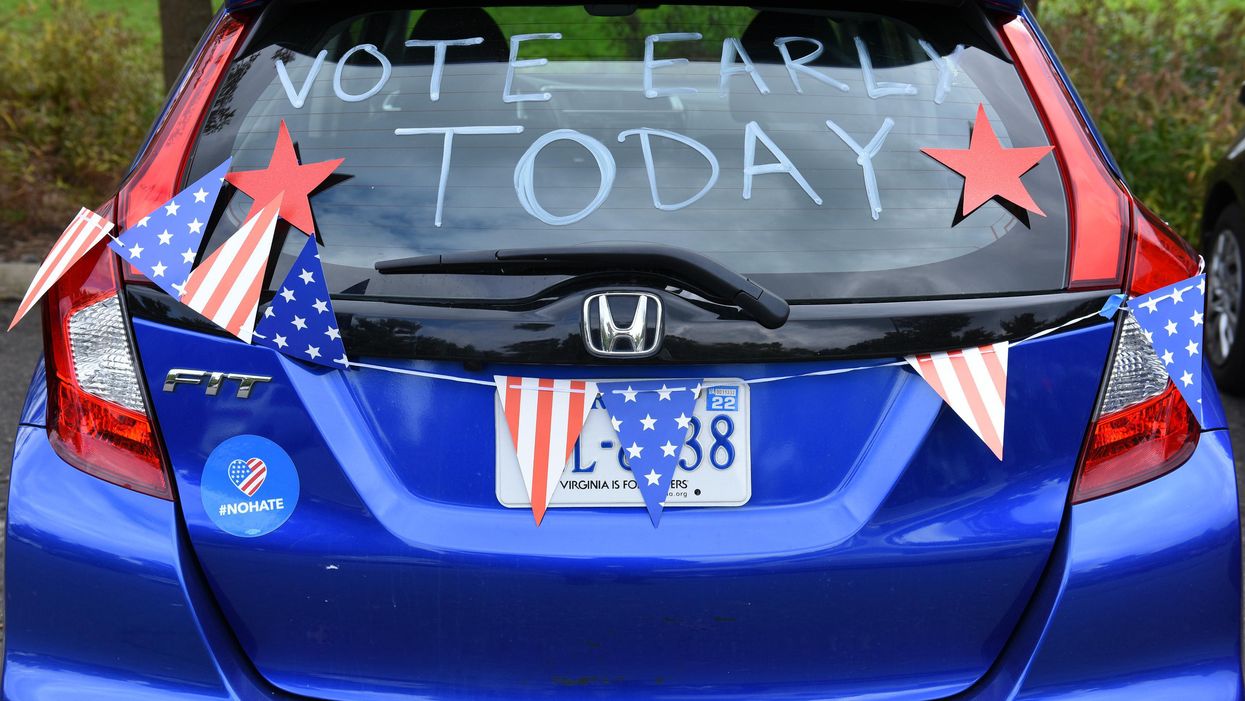LaRoque volunteers for the Election Reformers Network, a group of international election specialists who promote electoral improvements in the United States. A past election observer in 10 foreign countries, she was on an international team that monitored the November presidential election.
With Joe Biden now inaugurated and at work in the Oval Office, we can finally say with absolute certainty that the 2020 election is — thankfully — over.
As that dust settles and we begin to look to future elections, we must decide as a country whether to continue the unprecedented degree of early and absentee voting measures put in place as a result of the coronavirus pandemic. Indeed, this issue is already being taken up by state election officials across the country.
Here's why these measures should continue.
First, turnout increased last year despite a once-in-a-century pandemic.
Nearly 160 million people voted, more than in any other election in the past 120 years, and a staggering 101 million of those ballots were cast early or absentee. This equates to 66.6 percent turnou t, or precisely two-thirds of the voting eligible population. By comparison, 2016 turnout was only 60.1 percent.
We should be extremely proud of this turnout. The coronavirus pandemic could have easily dampened voter participation, but instead we saw a marked increase. To be sure, the highly contested nature of the presidential election fueled voter participation. But a case can also be made for the many measures states took this year to expand early and mail-in voting in response to limit long lines on an Election Day in the middle of the Covid-19 scourge.
Second, voters appear to like options.
This year, 39 states and the District of Columbia offered in-person early voting, for periods ranging from three to 45 days before Election Day and averaging 19 days. Some states, like Texas, increased the length of this early voting period specifically because of Covid-19. We also saw around half these states allow early voting on Saturday and a handful even opened polling places on Sunday.
The option to vote on weekends is undoubtedly welcome to the many who have struggled to vote in person on a Tuesday while balancing work or school schedules. For some perspective, most elections around the world are held on weekends to maximize the ability of voters to participate. (The United States and other countries that started as British colonies tend to be the exception and to hold elections on weekdays.)
This year all 50 states also provided voters the option to cast an absentee ballot, mostly by request, and 38 of them did not require an excuse for voting by mail. Only Indiana, Louisiana, Mississippi, Tennessee and Texas required a specific reason for wanting to vote absentee. Colorado, Hawaii, Oregon, Utah and Washington already planned to conduct their elections entirely by postal ballot, and 10 other states plus D.C. sent ballots automatically to all registered voters.
These accommodations paid off in voter participation in an unprecedented way. More votes were cast early or absentee than the total turnout four years before in a handful of states — and that number topped 90 percent in such critical swing states as Georgia, Florida and Arizona. Although election observers and media reports detailed long lines in some places during early voting, the greater dispersal of voting before Nov. 3 decreased the likelihood for technical glitches and hours-long queues on Election Day itself.
This early voting momentum also applies to young voters, a group that has historically participated the least in our elections. Somewhere between 53 and 56 percent of people younger than 30 voted — compared with 45 to 48 percent four years before. Moreover, a staggering 70 percent of these votes were cast early or absentee this time. In battlegrounds Texas and Florida, the total early youth vote topped the total youth vote in 2016. This increased turnout had a decisive effect on close races in several states.
Unfortunately, for many states, expanded early and absentee voting measures were temporary changes made to keep turnout strong but voters safe due to Covid-19. Now states should look to make them permanent. While there are positive signs from Democratic and Republican states alike, public opinion will be key to institutionalizing these measures.
To be sure, there are logistical and security matters to think through: postmark deadlines for mailed ballots, voter verification requirements for absentee voters and the timetables for processing and tabulating the early or absentee vote.
We should commit ourselves, however, to thinking these questions through in an effort to sustain or even increase 2020's record turnout. We can start with expanded early voting and no-excuse absentee voting, two measures that clearly withstood the stress test of the pandemic. Making such measures permanent, in addition to exploring same-day registration and automatic voter registration at the age of 18, will further improve turnout.
But that's not enough. Making voting easier will not necessarily lead to higher voter participation, research has shown. To be really effective it must be paired with improved voter education and outreach.
At the end of the day, our democracy is built on participation. Voting should be as convenient and secure as possible. Republicans and Democrats both benefited from increased turnout in 2020. If we can administer safe and secure elections during a pandemic, with multiple options for voters to participate, we can build upon this progress before future elections.



















